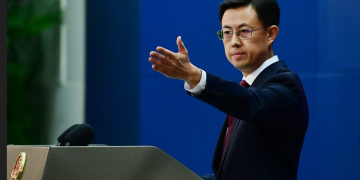In a bid to stimulate consumption and bolster domestic demand, China has announced a series of measures aimed at promoting the purchase of vehicles and household appliances.
Vice Minister of Commerce Sheng Qiuping revealed these plans during a press conference on Tuesday, emphasizing the significance of automobiles, household appliances, and home furnishings in traditional consumption patterns.
The focus on stimulating consumption comes as China witnessed a significant surge in new car sales, which exceeded 30 million units for the first time last year, marking a 12 per cent year-on-year increase. Additionally, the country’s second-hand car trading volume reached 18.41 million units in 2023, reflecting a substantial rise of nearly 15 per cent. With car ownership in China now reaching 340 million, the nation holds the top globally.
In addition to encouraging vehicle trade-ins, China will also promote the renovation of old houses and the replacement of home appliances as part of its efforts to bolster domestic demand. Furthermore, the country aims to spur new forms of consumption, including cross-border e-commerce, new energy vehicles (NEVs), and China-chic products to unleash consumption potential.
Amid preparations for the upcoming Spring Festival holiday, which runs from February 10 to 17, China has ramped up efforts to ensure sufficient supplies of daily necessities. Vice Minister Sheng emphasized that there are ample inventories of daily necessities in wholesale markets across the country. Moreover, supermarket inventories of necessities have seen an increase ranging from 10 per cent to 30 per cent more than usual. Major e-commerce platforms will continue to provide delivery services during the holiday season to meet consumer needs.
Market prices for basic commodities have remained generally stable, with the average wholesale prices of grain, edible oil, beef, and mutton in the country’s large-scale wholesale markets remaining unchanged from the beginning of the month. Although pork and egg prices experienced slight increases of 2.1 per cent and 0.7 per cent respectively, vegetable prices showed a seasonal rise.
As the Spring Festival approaches, major shopping malls, supermarkets, and online platforms are experiencing robust sales. In late January, sales of retail enterprises tracked by the ministry surged by 19.9 per cent month-on-month. Data also revealed that sales of key e-commerce platforms increased by 20 per cent year-on-year last month.
“We aim to create a festive atmosphere through joint efforts from governments, companies, and industry associations,” stated Vice Minister Sheng, underscoring the collaborative approach to enhance consumer experiences during the holiday season.













































